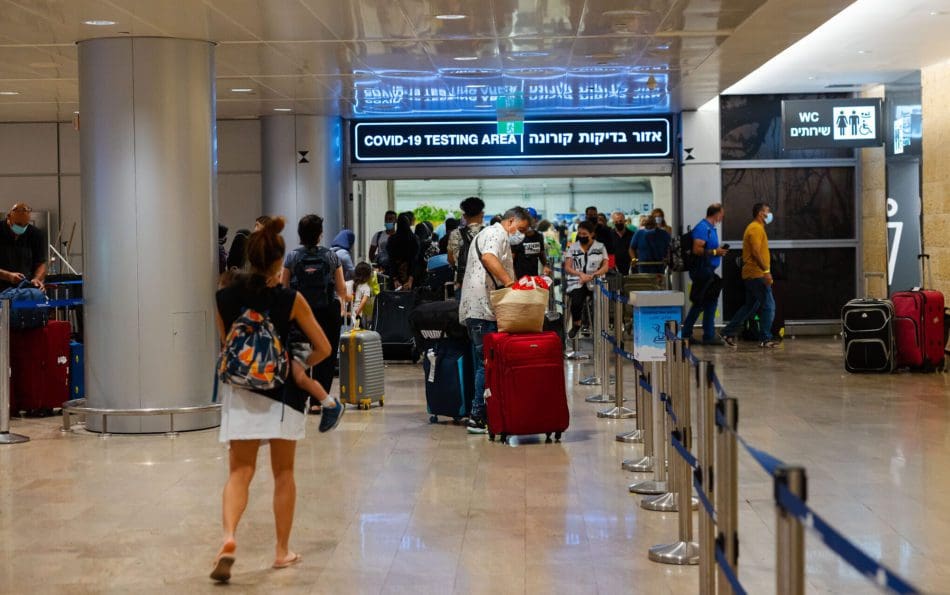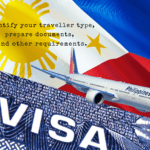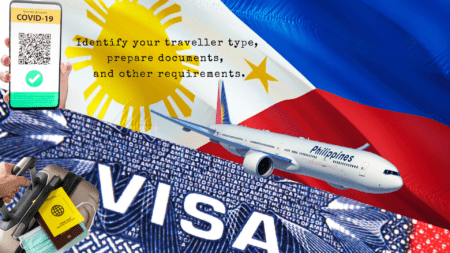Despite the weak economy, Greece is slowly turning into a top destination for entrepreneurs, remote workers, especially for digital nomads. So, while it is making many political and bureaucratic policies towards this goal, its natural landscape, and pristine tourism industry is also adding to their efforts.
It has got everything that a digital nomad needs to work, live peacefully, enjoy life, and that too at a reduced price. So, if you are an aspiring digital nomad and you’re thinking of Greece as your next destination for remote-working, read along. Here you will find everything you need to know before moving. Don’t move there without searching about the things you need to know. From best places and cities to live to party hotspots, we have rounded up everything in detail.
So, dive right in!
What do I need to do to enter Greece?
All travelers above the age of 12 must complete a passenger locator form before arrival in Greece.
They must also have proof of a negative PCR test, taken within the 72-hour period before arrival, or a negative rapid antigen taken 48 hours before your arrival or proof of vaccination.
Greece also accepts proof of recovery from Covid-19 in the form of a positive PCR test result taken between 30 and 180 days of your travel dates.
Accommodation In Greece for Digital Nomads
Finding accommodation is not easy. And to save you from that pain here are the tips of the places you can live as a digital nomad.
Coliving Spaces: In co-living spaces, a group of people shares the accommodation, and the amenities present there. These people share the kitchen, bathroom, and living area. Sometimes, people also share the bedrooms to save money or when they cannot find any other place to live.
- Note: Long-term stays often have lower rates than monthly rentals.
Rental Apartments: Rental apartments are best if you are moving with your family or prefer privacy. These are usually short-flexible term rentals, but the least you have to stay for is one month. Besides, these might be a little more expensive than coliving spaces. You can find these apartments through various Facebook pages.
Airbnb: Airbnb is increasingly becoming the primary choice of every digital nomad in Greece. It makes you feel like a real home, and you can stay relaxed for the entire duration you are there. You can find these online easily and make a booking.
Hotels: Digital nomads in Greece looking for more luxurious accommodation with free internet access, hot showers, laundry, and sometimes even breakfast, can book a room in a hotel.
- Caution: This is a costly option.
Hostels: This is the best choice for nomads who want to meet new people and form networks. Most importantly, hostels are absolutely affordable and somewhat similar to coliving spaces.
Best Cities For Digital Nomads In Greece
Thessaloniki
Thessaloniki is the second-largest Greek city and is also included in the list of 20 best cities globally for digital nomads. It has a range of coworking spaces, restaurants, and fitness centers. It is well-connected with the rest of the cities and countries through a major domestic and international transportation network. Moreover, with an enriched history and culture, you can learn the most about the country. The average monthly rent in Thessaloniki is € 305.24 (small accommodation). It is not overcrowded or touristy. You will get to relish the amazing variety and taste of food. There are many digital nomad-friendly cafes.
- Caution: It can get too chilly during winters.
Rhodes
This is one of the main islands of the country and is situated in the southeastern part of Greece. Rhodes has the longest summer season in the country, making it digital nomad-friendly, full of energy, and party places. Although the place is a little tourism-oriented, you can easily find a spot away from the crowded hotspots. The average monthly rent in Rhodes is € 234 (small accommodation). It offers a decent internet speed with 3.83 Mbps (download speed).
- Caution: Limited healthcare options.
Patras
Patras is a busy port city and has been an important center of trade for centuries. There are a lot of fancy bars and restaurants, one of the reasons it remains a hub for university students. It is an ideal location for digital nomads in Greece, with many people to form networks with and escape away for the weekend. Not to mention, there are some marvelous beaches nearby. The average monthly rent in Patras is € 255 (small accommodation). The average internet download speed is 13.7 Mbps. There are many open spaces for working, hosting meetings, and also free coffee in the coworking.
- Caution: The city doesn’t have any airports.
Athens
For several years now, Athens has attracted a lot of digital nomads. The Greek capital offers a combination of climate, quality life, and affordable cost of living. Moreover, it is a transit hub for the whole of Europe. There is a never-ending range of monuments and several UNESCO world heritage sites. The average monthly rent in Athens is around € 300 (small accommodation). It has everything a digital nomad in Greece or anywhere in the world needs, like cafes, gyms, coworking spaces, and delicious food. The average internet connection speed is 18 Mbps.
- Caution: The city is mostly polluted and crowded.
Santorini
Santorini is one of the most wonderful islands in the country. With its blue domes, whitewashed walls, and a breathtaking view of the ocean, it is not only a favorite tourist spot but also becoming one for digital nomads. Although the island is a little expensive, there’s no harm in experiencing the island life for a few months. The average monthly rent in Santorini is €305 (small accommodation) It is neither too crowded nor bustling. A lot to do over the weekend or after working hours.
- Caution: A person may feel isolated if he stays for a longer time.
Transportation in Greece
With an organized transportation system, Greece is well connected with the rest of the world. Furthermore, all cities and small towns too are connected by roads and air as well.
Athens is the only city in the country to have a metro along with an urban and suburban railway and a tram network. The ticket is affordable. The structure is like 1.40 euros one and a half hours devoid of the distance you have traveled. Moreover, e-tickets are not yet implemented completely, and people buy paper tickets from the vending machines available at every stop.
Taxis: Even in the remotest islands of Greece, taxis are readily available and are really cheap. The minimum fare is 3.47 euros. Also, traveling by taxi has been considered very safe with zero incidents of fraud or violence. Some old drivers may smoke while driving and talk rudely.
Buses and trains: There are extensive train and bus networks in the country. Bus tickets are cheap and can be easily bought at bus stops or while onboard.
Car Rentals: Renting a car to travel around is one of the most secure ways. There are a number of agencies that offer rental services at the airport and other common places. Besides, make sure to go through all the traffic rules before stepping into the driving seat.
The Worst Part of Greece
For a digital nomad, Athens is the most exciting place in Greece, simultaneously the most expensive. Therefore, we recommend that you stay there for a maximum of two weeks before moving. Besides, during summer it’s scorching, and some parts of the city are really dirty and shabby. If you decide to put up on an island, note that you might not get a good internet connection over there. Not to mention, a digital nomad cannot work in a no-internet zone.
Greeks like to deal in cash more than digitally. Therefore, chances are your credit cards might not work everywhere. Almost half of the population smokes in Greece. So, you will have to avoid coughing or raising your eyebrow while stuck at a place full of smokers. If you just can’t stand it, request politely for the person to move aside.
What Type Of Visa Do I Need To Live In Greece?
Non-EU citizens wishing to work in Greece require a visa to enter the country. Moreover, if you plan on staying for less than 90 days, you need not apply for a residence permit. A tourist visa would do the needful.
Moreover, you will have to apply for a Schengen Greece visa, whatever be the purpose of your visit.
Greece Digital Nomad Visa
Greece’s government is planning to introduce a special visa for digital nomads, which would permit internationals engaged in remote jobs, to work from Greece.
What Type Of Digital Nomad Is Greece For?
Greece is ideal for digital nomads who are indulged in blogging, web development, online marketing, and art. With a developed infrastructure to support all types of professions and good internet connectivity, anyone can move to Greece.
The plan agreed mutually between Greece’s Ministers of Migration, and Foreign Affairs aims to help remote workers choose the advanced way of working. It has also been reported that the visa will be combined with tax incentives in order to attract permanent investments.
Tips For Digital Nomads In Greece
- Make an informed decision about the number of days/months or years you are going to stay in the country. Whether you are from the EU or a non-EU country, check the government website to know exactly how long you can stay.
- No matter where you belong, you need valid health insurance as long as you are in Greece,
- Besides, research about the place where you are going to stay and check whether you will get every necessary item there. If not, it’s always a smart idea to buy it from your native place. Of course, provided that the airlines allow you to carry it.
- Try to learn some common Greek words before moving. Since you will encounter less number of people speaking English or any other language. If possible, download an offline Greek dictionary. Greece is really hot during summers, so keep yourself hydrated with lots of fluids and keep drinking water.
How to save money in Greece
- Say no to taxis, metros, and buses! When in Greece, make sure you opt for the walkways unless it’s really needed. Moreover, the best you can discover and adore the beauty of Greece is by walking.
- Find out where the locals shop from. Instead of buying vegetables, fruits, and other groceries from the supermarket, try the local Greek market. You will know that the food is fresher and tastier there.
- Do not eat at your hotel every day. This is for the ones who are staying in hotels. We recommend you go to a local restaurant for your meals. Check with the locals where you can find the cheap and best food.
- It is wise to rent a private room in an apartment in a relatively costlier city like Athens. This way, you can spend on other necessary items with much more ease.
- Although the water bottle rates are regulated at 50 cents per small bottle, you can save that money by drinking tap water. It is safe.















